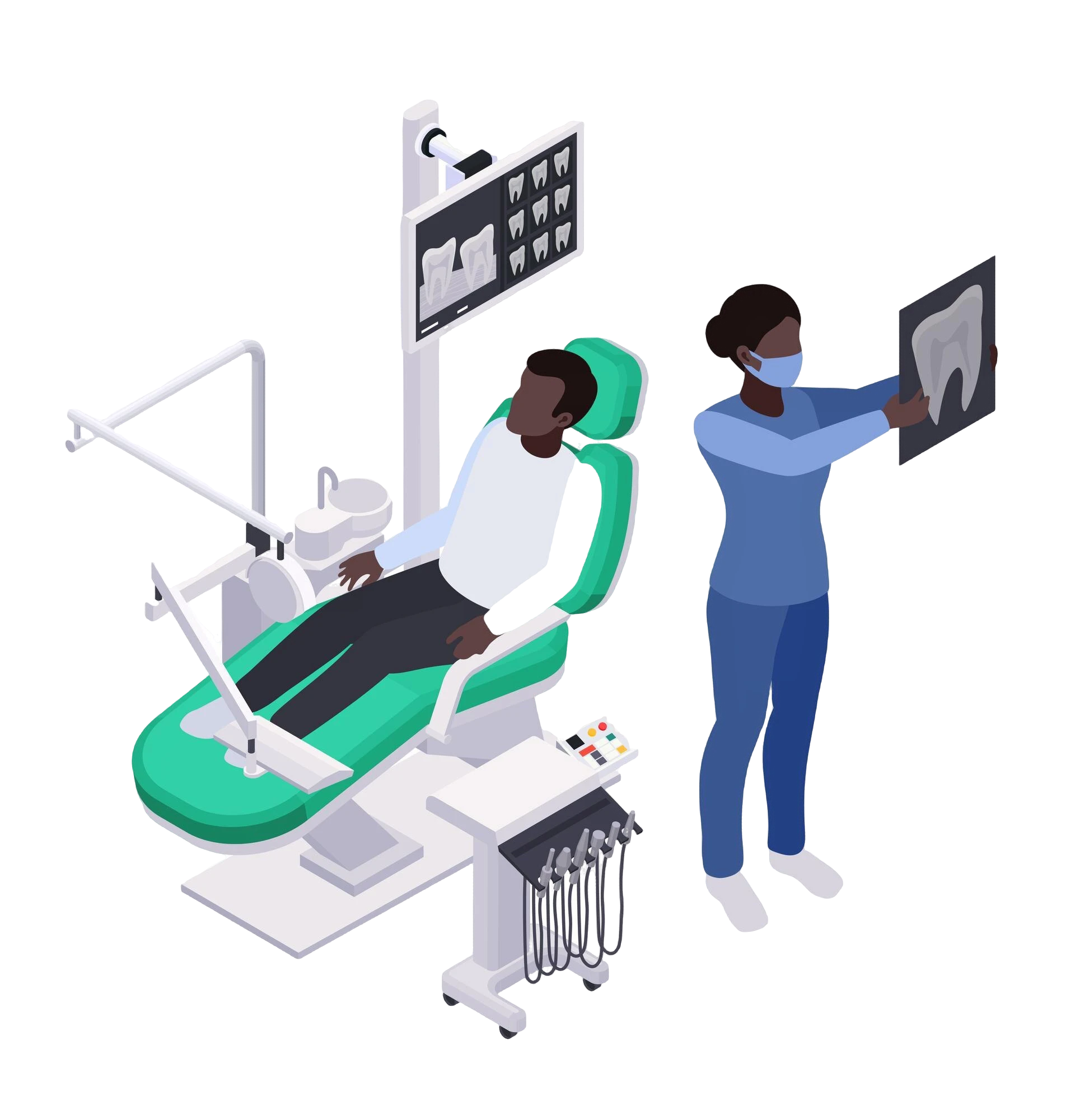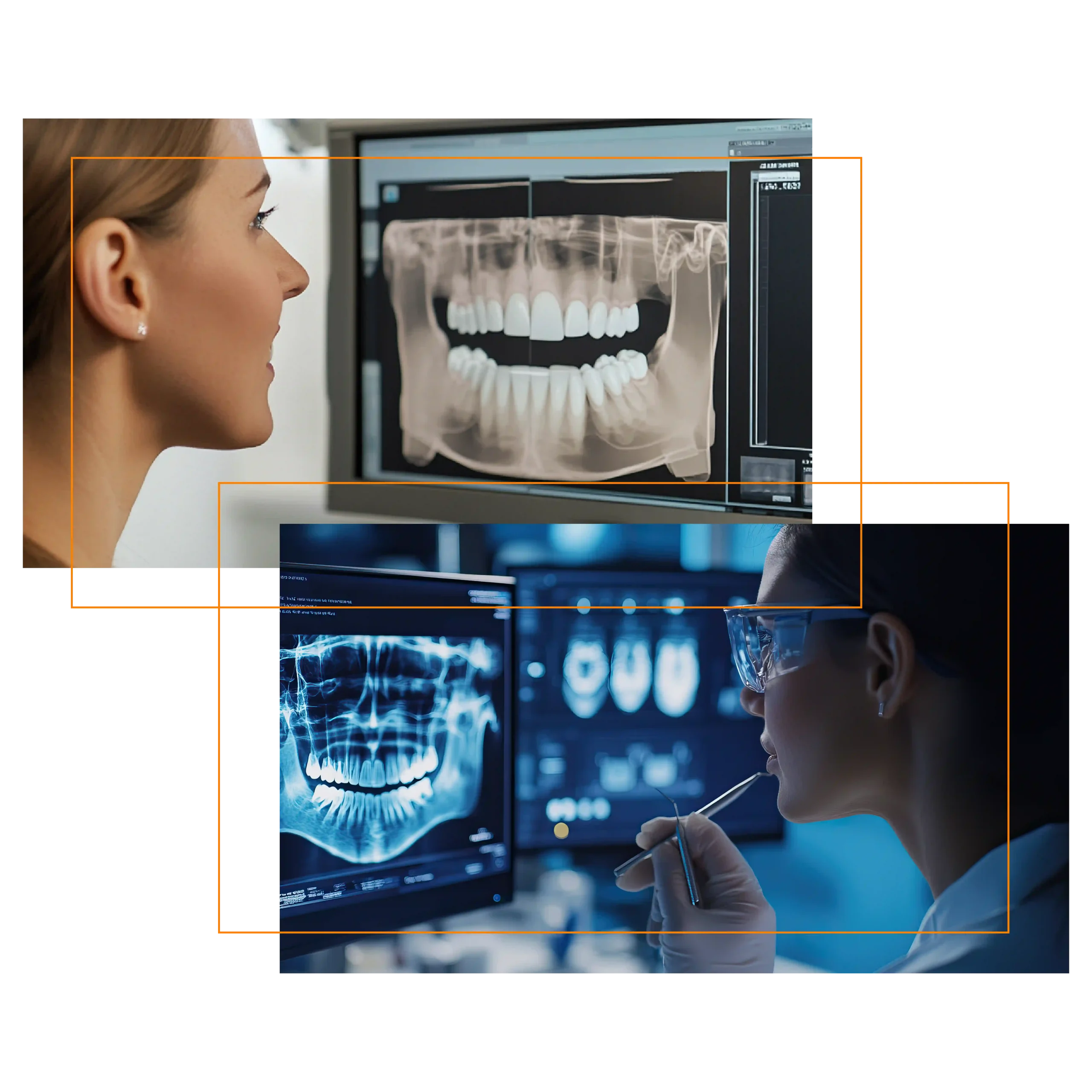Overview

In order to manage the data of dental patients for one of our prominent clients in healthcare sector, we developed an advanced desktop application of dental digital imaging software for one of our clients.
- Ensuring consistent image rendering, precise diagnostic tools, responsive touch interactions.
- Integrating Cornerstone for consistent image rendering and developing precise measurement tools.
- Optimizing touch interactions, creating specialized dental imaging filters, and designing a fully responsive UI for seamless cross-device functionality.
- The solutions significantly enhanced workflow efficiency, user engagement, and platform scalability that offers an intuitive experience.
Case
Our team has developed a new desktop application for our client: dental digital imaging software, which is an advanced and integrated ecosystem created to efficiently manage dental patients, featuring a robust DICOM/image viewer. The platform includes secure, cloud-based desktop, tablet, and web applications developed to improve workflow and provide a seamless user experience for healthcare professionals.
The newly developed desktop application will support multiple modes of DICOM database interaction, including local, cloud, and hybrid environments. Additionally, it will directly integrate with scanning and X-ray instruments, offering healthcare professionals a comprehensive solution for managing dental medical images and patient data.
Challenges
During the development, several technical and functional challenges arose, requiring innovative solutions to ensure a robust, secure, and user-friendly platform across multiple devices.Key challenges included:
- Consistent rendering of diverse image formats (JPEG, PNG, BMP, TIFF, DICOM) across platforms.
- Implementation of precise measurement and annotation tools for diagnostic accuracy.
- Enabling smooth touch interaction for image manipulation on tablets and mobile devices.
- Developing a specialized tooth filter for dental and veterinary imaging.
- Designing a responsive UI adaptable to various screen sizes and orientations.
Solution
We implemented a solution, to manage DICOM files and standard image formats like JPEG, PNG, BMP, and TIFF during the development. By integrating this into our Angular application, we achieved consistent image rendering across all platforms, ensuring a unified experience for users.Measurement and annotation tools were built using Cornerstone Tools, providing robust features for zooming, panning, measuring, and annotating images. We extended this functionality by adding custom measurement logic and improved annotation handling, ensuring precise and efficient image analysis for various medical use cases.
The input functionality was customized for smooth and responsive touch interactions, particularly on tablets and mobile devices. This enhanced the user experience by ensuring fluid image manipulations, even on touch-enabled devices, without compromising performance.
We also developed custom SVG overlays for dental and veterinary images to represent different types of teeth. By consolidating data into a single array structure, we optimized memory usage and scalability, allowing for dynamic rendering of tooth structures without duplicating code or consuming excessive resources. This optimization significantly improved performance, resulting in faster load times and smoother image interactions.
Finally, the user interface was designed to be fully responsive, adapting seamlessly to different screen sizes and orientations. Leveraging HTML5, CSS3, and Angular’s responsive design framework, we ensured the UI provided an optimal experience across desktops, tablets, and mobile devices.
Impact
By utilizing cutting edge technologies, we ensured consistent and efficient image rendering across various formats, including DICOM, while ensuring flexibility for future enhancements. The development of custom measurement and annotation tools allowed for precise, real-time image manipulation, which is critical in medical and veterinary imaging.
Our focus on touch support significantly improved the user experience on mobile and tablet devices, making the application more intuitive and accessible to a wider audience. Additionally, the responsive UI design seamlessly adapted to different devices, providing a user-friendly experience across desktops, tablets, and mobile platforms.
These combined efforts enhanced both the functionality and scalability of the system, resulting in improved workflow efficiency, increased user engagement, and a more robust and versatile platform.
